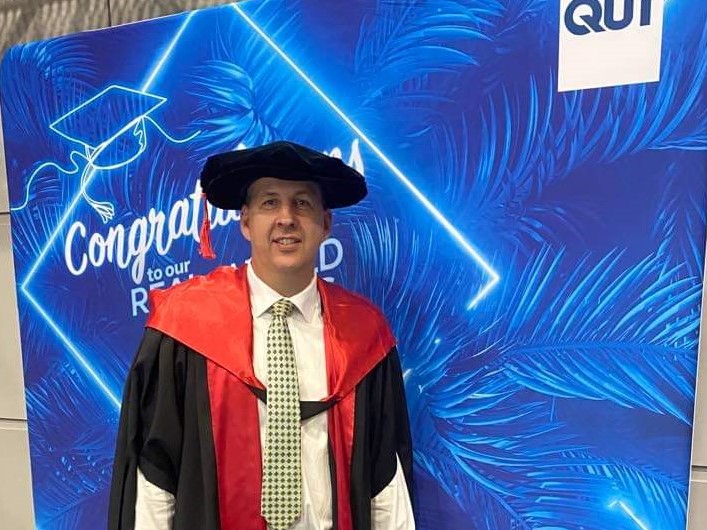
Brenden Harris, Fredon’s Electrical Engineering Manager, recently received his Doctor of Philosophy (PhD) in Asset & Process Engineering Management from the Queensland University of Technology.
Brenden has been committed to his studies since starting it in 2015, all whilst working at Fredon. During this time, he has also completed an Executive Masters of Business Administration and Masters of Project Management, publishing several articles in peer-reviewed journals, and being admitted as a fellow to the International Society of Engineering Asset Management (ISEAM). Brenden has also represented Fredon in Brisbane and Brazil, presenting at the World Congress of Engineering Asset Management.
When asked about his learning opportunities that were presented to him during this time, Brenden shared –
“Through Fredon’s support and encouragement, I have been able to manage my time so that I could meet work and university deadlines. I have been given opportunities to take on different roles at Fredon where the skills that I have learnt at University have been put into practice.”
Ian Forbes, Group Electrical Director spoke very highly of Brenden and his achievement-
“Brenden has worked incredibly hard on his PhD and his efforts should be commended.”
“We’ve spoken a lot about his education and he has always kept me well informed on his studies and what he is doing at Fredon. He’s been able to use examples of his work at Fredon in his studies and conversely, his studies have been a great benefit to the business – he’s always coming up with a new idea to help Fredon and our clients.”
“Brenden is an absolute joy to work with, it’s very interesting, informative and very rewarding.”
Congratulations on this achievement Brenden! Thank you for being so dedicated to both your studies and Fredon.
Brenden’s thesis was Design to Maintenance: A New Construction Design and Building Life Cycle Management Approach.
The thesis develops a systematic and innovative approach to integrating commercial building design and maintenance so as to advance the body of knowledge of building life cycle management. Different from other studies, this approach extended the beneficial outcomes beyond the traditional capital focused outcome to the whole building life cycle. Participatory action research was employed and a number of mega commercial project case studies have demonstrated the research has improved traditional engineering practices significantly by linking design and error costs to maintenance, which resulted in improving asset life and values.
